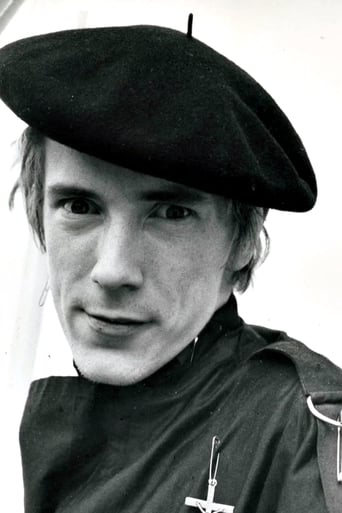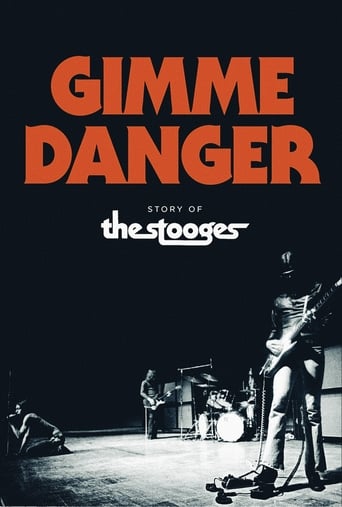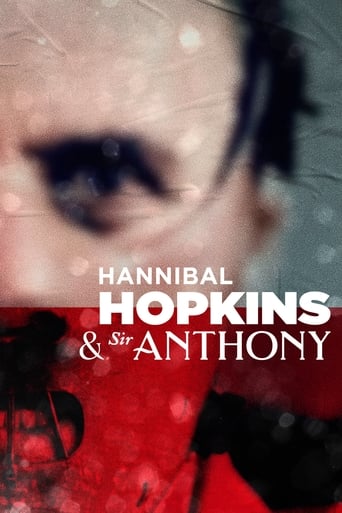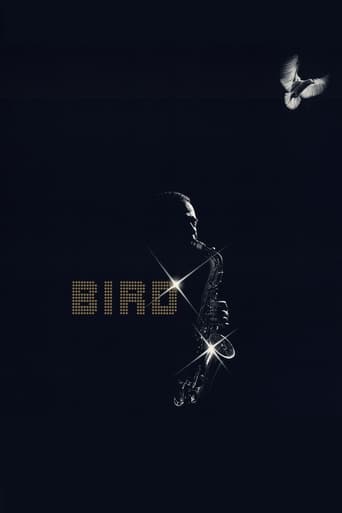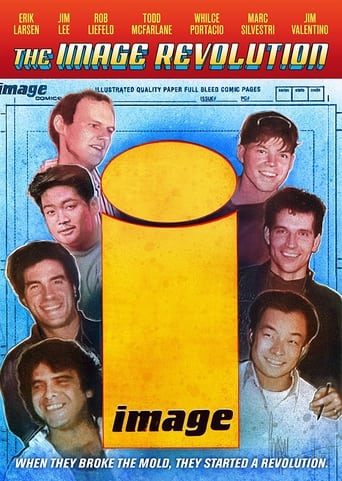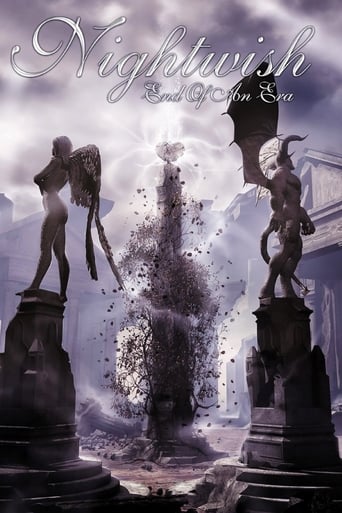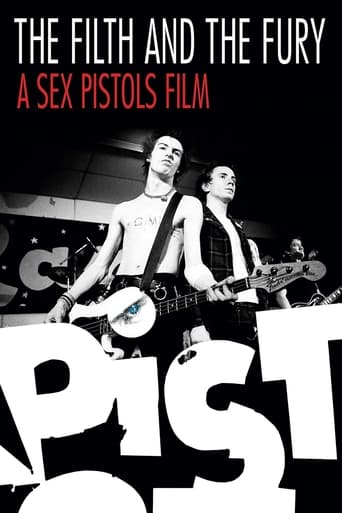

The Filth and the Fury (2000)
Julien Temple's second documentary profiling punk rock pioneers the Sex Pistols is an enlightening, entertaining trip back to a time when the punk movement was just discovering itself. Featuring archival footage, never-before-seen performances, rehearsals, and recording sessions as well as interviews with group members who lived to tell the tale--including the one and only John Lydon (aka Johnny Rotten).
Watch Trailer
Cast
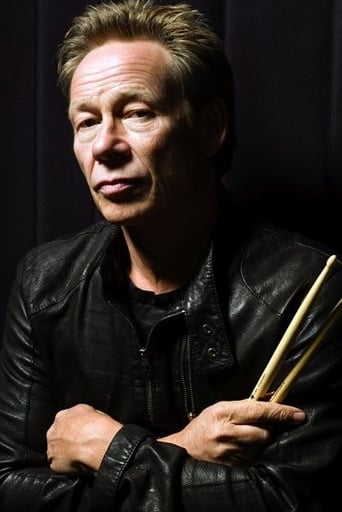


Similar titles
Reviews
This movie is the proof that the world is becoming a sick and dumb place
the audience applauded
best movie i've ever seen.
Like the great film, it's made with a great deal of visible affection both in front of and behind the camera.
This is the Sex Pistols in their own four-letter words, probably a better way to review punk rock than in Malcolm McLaren's self-regarding version of the story, filmed by the same director twenty years earlier.It is hard to know who could be shocked by this outpouring of meaningless blasphemy and violent rebellion against nothing very much. Yet many people were deeply outraged by the first of the punk rockers. A Welsh town tried to ban them. The giant record company EMI felt obliged to fire them. And the veteran TV presenter Bill Grundy wrecked his career by failing to restrain their foul language on a chat-show.All of this was music to the ears of McLaren, who had been casting around for a new brand of youth-protest to replace the fading hippie culture in which he himself had been so immersed a few years earlier. Something harsher was needed, something with spikes and swastikas, laced with heroin.The answer was Punk, perhaps the most effective four-letter word of them all, literally impossible to utter without anger and hate. The band itself is awash with hate, and self-hate, at its most unmistakable in the Sid Vicious interview, where he says he wishes he was underground. (A few months later, he was.) Julien Temple's treatment has been praised for its subtle interleaving of newsreel to provide the social background that was supposed to justify the excesses of Punk. Personally, I can't see what's so subtle about it, though the apparently irrelevant clips from Olivier's Richard III may be putting out a message too subtle for most of us.Still, the authorised (socialist) version of 70's England is the main theme - an oppressed working class, ripe for revolution. Johnny Rotten probably didn't realize he was revealing the flaw in the argument when he says "We don't know who 'working class' means any more." Indeed not. It used to mean manual workers and their families. By the 70's, it had swung round to mean almost everything other than this - a rentamob of full-time anarchists, unemployables, illegal immigrants and striking students and professors. (Johnny and Sid first met in higher education.) In the end, the sheer nihilism of the subject makes it monotonous, and it doesn't help that all four of the band are actually named John, so we often don't know who is describing whom. Like all revolutionaries, they disagree about everything, except their intense loathing for Sid's girlfriend Nancy Spungen. ("Never felt such negative energy"). Still, there is a nice touch, arriving at JFK, where the customs are determined to do a full drug-search... until they take a look at Sid's underwear, and mysteriously decide to wave them through after all.
A documentary about the rise and fall of the most notorious punk rock band of all time; The Sex Pistols.When I was a kid I was hypnotised by Johnny Rotten / John Lydon, and to some extent I still am. He looked and sounded so different from anybody else, particular the musicians who were on TV a lot, like Abba and David Cassidy. He was scary, unique, funny, and behind his penetrating stare there was an almost ruthless, questioning intelligence. I never bought for a second what the authorities said about how The Sex Pistols would create a corrupt society. I thought a corrupt society had created The Sex Pistols, and I thought their music - and the music of the many bands they influenced - was brilliant. This thought-provoking documentary is a companion piece to Temple's 1980 cult classic The Great Rock 'n' Roll Swindle. But whereas that was the brainchild of their egocentric impresario manager Malcolm McLaren, this is their story in the band's own words. It deals with the social upheavals of seventies Britain which gave rise to them, and then does an excellent job of charting their progress from alternative music club heroes to national pariahs to chart topping music icons, to disillusioned and ripped-off losers, without pulling any punches. Typical Sex Pistols day; internal band punch up in limo, sign prestigious contract in front of Buckingham Palace, get wasted and trash record company offices, record a number one hit single (God Save The Queen, which was subsequently banned) and get fired by your new label. If anyone has the right to call themselves anarchists, it's them. Some of the footage in this film comes from Swindle and other familiar sources, but there is also lots of new stuff, particularly some intimate pieces with Vicious, which make his pathetic, tragic fate all the more sobering. It's also packed full of tub-thumpingly great music and performances from a terrific band who compressed so much energy into their short-lived career. A must for all punk fans and for anybody interested in one of the most influential musical movements of all time. The title comes from a tabloid newspaper headline the day after their infamous Bill Grundy TV interview. For more detailed insights into Lydon and the heady years of the late seventies, read his excellent book No Irish, No Blacks, No Dogs.
The real story of punk rock will, apparently, never be told. I suppose that's because most of the surviving participants have too much ego invested; or because, as the years fade, and the original social context disappears, the meaning of Punk - at its inception - becomes harder to decipher and easier to forget.I was in NYC in '76, when it was first breaking for the national press, and I hung around CBGBs under a number of pseudonyms, trying to write reviews and articles on bands that nobody ever heard of, many of them breaking up before I could dot the last "i" in the last paragraph. And I tried out a couple bands of my own, weird blends of Iggy and the Velvet Underground. But I was really an outsider (coming from upstate); and when the London scene started shipping singles over, I knew that, for whatever reason, my heart was really more into "Anarchy" and "White Riot" than the metal-surf-music of the Ramones or early Blondie. But this disjunction of 'right time wrong place' or whatever, allowed me to see the development of Punk in a way others seem content to ignore.The fundamental problem that Punk never resolved (and current neo-punks are still struggling with it), is, whether Punk was to be a continuance of the "counter culture" of the '60s in different guise, or just another pop-music for sexually frustrated young people. This sounds like an empty theoretical issue, but it has one all-important concrete aspect to it no one can ignore - money. Did (do) punks make music to make music - or to make money? That question was never answered; or, perhaps, every punk answered (answers) it in his/ her own way. Yet once we begin adding up all the individual answers, most of them sure come out sounding like "money". Yet the memory of Punk survives largely because it seemed to be about anything other than money; so the dilemma continues.That dilemma surfaces again in this film, especially in the discovery of the wretched rip-off Pistols manager Malcom McLaren pulled, not only on the audience, but on the Pistols themselves. The brief moments from the (thankfully unfinished) "Who Shot Bambi?" make it very clear that McLaren had not the slightest clue as to who the Pistols were, or what they represented. Yet he not only continued to guide their career after their break-up, but is warmly mentioned in Griel Marcus' scholarly history of Punk, "Lipstick Traces", which will probably bear influence on punk histories, long after the last "photo-album" paperback turns to dust. Yet it is clear that from the get-go McLaren's only interest was the profit.The Pistols were right, and are right, to ignore questions concerning their "materialism" or "selling out", since they were never part of the hippies' 'anti-materialism' ideal to begin with, and because they never denied a desire for some paycheck (which they almost never got from McLaren). But also plain is their desire to make the music of the UK working-class slums from whence they came.All of this comes to a head in the brief yet unforgettable tragedy of Sid Vicious - for whom music meant freedom, and money meant - heroin. But junky 'rockstars' don't play at commercial venues to make music. He ended up in NYC, which by then had a punk scene swarming with record-co.-exec vermin dealing dope and poseur sycophants trying to score. Eventually all that was left was the heroin, and it killed him.This film won't resolve any of these issues; but it may help raise them, and place them in a proper light. I can't agree that it is a well-made film - the editing, which is very flashy, is also somewhat vapid, and goes out of control too often. But there's adequate reminder of the era of the Pistols here, and why it was many of us thought, at the time (and still believe) that the Pistols were the most important rock band in history.The segment from the final performance at Winterland is worth the price of the film: same-old same-old music concerts are "no fun" and Jones and Rotten (knowing they've been betrayed by McLaren into performing for the corporate music world they hated) rub our noses in it until they've had enough and stalk off. If you can see this - and know what it's about - and still pay $200 to see Mick Jagger pull his wrinkled pud at you at the age of 65, you don't need a movie review, you need a psychiatrist.
The first Julian Temple documentary on the Sex Pistols, 'The Great Rock n'Roll Swindle' was a gimmicky treatment that suggested the creation of the band was all a clever confidence trick perpetuated by Malcolm Maclaren. In his version the Pistols were a personal creation that deliberately manipulated the media and the 'suits' that ran the music industry into paying out vast amounts of cash even when the band failed to produce any material. This second version of events is a little more honest. Maclaren is shown to be a self-deluded egotist, the real driving force being 'Johnny Rotten', and the band, far from having the upper hand, were in fact ripped off financially by the very people they were supposed to be rebelling against.It all ended in a shambolic final concert where Rotten wails out 'No Fun' for 15 minutes and then walks off with a smirking, 'Ever felt you've been cheated?'Trouble is; this is a lie as well. The Pistols carried on after Lydon left; sad fun and games with the Great Train Robber, Ronnie Biggs and Sid Vicious' infamous rendering of 'My Way' being the 'highlights'. What's more, within months of Johnny Rotten's noble statement about not selling out at the end of the documentary, the Pistols reformed in the 21st century and gave progressively pathetic concerts.It's still an interesting documentary but I guess the myth has now become so mixed up with the legend that anything approaching the truth is lost for ever.This documentary does feature, however, an archive interview with Sid Vicious whose real name was John, Lydon affectionately remembers - which I have never seen before. It says more about the times than anything else in the film. Although dressed in his trade mark Nazi t-shirt and initially punctuated with all the predictable anarchic attitudes, this veneer gradually slips away to reveal a young naïve man, who's life along with his heroin addiction was spiraling out of control. No fun, indeed.


